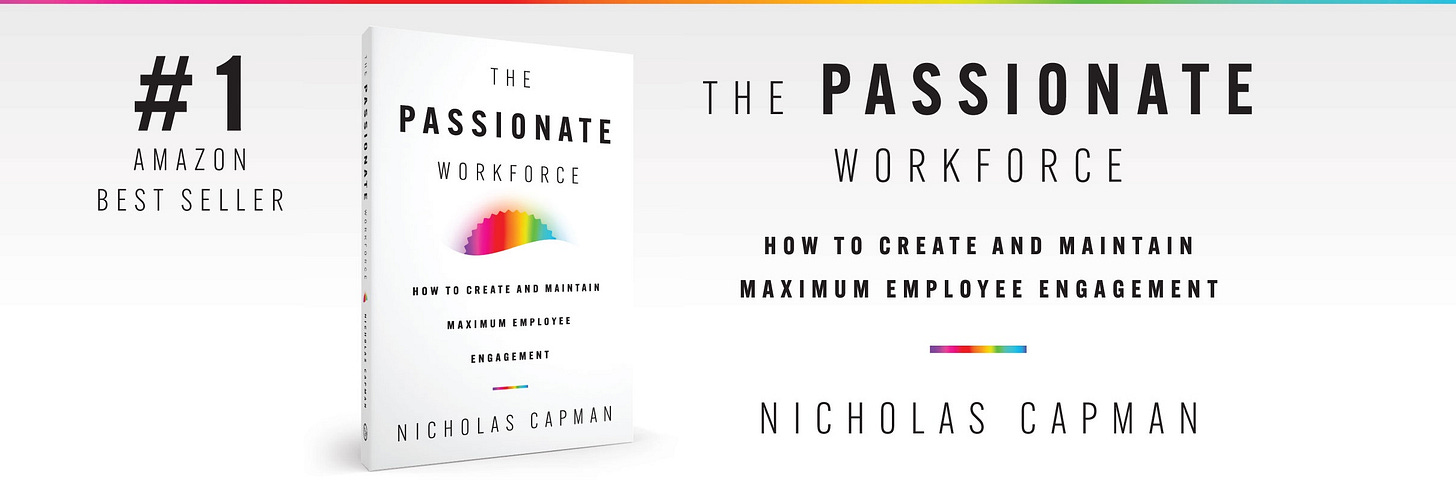This is an episode of The Passionate Workforce Podcast. Subscribe on Apple Podcasts here and grab the bestselling book on Amazon. These conversations are also available on YouTube.
Vedanta Biosciences’ Vice President of Quality, Edward Armstrong, recently joined The FDA Group’s Nicholas Capman for a conversation on the Passionate Workforce Podcast about one of the most important but underappreciated responsibilities of leadership: developing the next generation of professionals.
Ed has spent more than 30 years in quality roles across the industry. From building career ladders and transparent development plans to sharing candid stories of career setbacks, he offers a grounded, practical perspective on how leaders can—and must—prepare others to take the reins.
Below are the biggest takeaways from their discussion, distilled for leaders who want to build stronger teams, sustain compliance, and leave a lasting leadership legacy.
A few key insights from the discussion
Leadership extends beyond titles. Ed stresses that a “leader” isn’t always a manager. A senior lab specialist teaching new scientists or a document control professional coaching new staff can play just as vital a role in sustaining compliance and culture.
Transparency builds trust. Ed tells his teams: “You’re going to know 100% of what I know and what I’m allowed to let you know.” That radical transparency creates accountability and reduces damaging speculation.
Career ladders clarify options. By mapping out roles and potential paths—whether toward leadership or high-level individual contributor tracks—leaders give people ownership of their development while holding themselves accountable to supporting it.
Helping people grow may mean helping them leave. A strong development plan might reveal that someone’s future lies outside the organization. Ed argues that’s not a failure: it creates allies in the industry, strengthens reputation, and prevents careers from stalling under your ceiling.
Mentorship blends into daily work. Ed prefers mentoring in real time—inviting team members into high-stakes decisions, modeling his thinking process, and empowering them to challenge him. Critical moments of stress, he notes, are often the best training grounds.
Different generations, different needs. Today’s workforce includes Baby Boomers, Gen X, Millennials, and Gen Z—all with distinct expectations. Ed highlights Gen Z’s mix of technological fluency and skepticism toward AI as one example of why leaders must adapt mentoring styles.
No one advances alone. Ed closes by reminding us that every career is built with the help of others. Leaders have a responsibility to invest in those around them, not just for organizational continuity, but because it’s the right thing to do.
A few things to put into practice right now
Map career ladders: Define paths for both leadership and contributor roles to give clarity and shared responsibility.
Embed mentorship into real work: Don’t relegate development to annual reviews—use daily decisions as teachable moments.
Be transparent, even with limits: Say what you can, and admit when you can’t. Employees value honesty over silence.
Measure legacy through people, not projects: The true impact of leadership is who you’ve prepared to lead after you.
For leaders looking to build on this idea, Nick Capman’s book The Passionate Workforce: How to Create and Maintain Maximum Employee Engagement digs deeper into the very theme Ed raised: developing the next generation of leaders by cultivating passion at the team level.
Nick explains how steering a group’s collective mindset toward passion creates a ripple effect, turning engagement into a self-sustaining force that fuels innovation, continuity, and resilience—even when key leaders move on. Through practical strategies, case stories, and actionable steps, this Amazon #1 bestseller equips leaders with the tools to embed passion into everyday work and ensure their organizations don’t just survive transitions, but thrive through them.
Drawing from practical strategies, real-world examples, and proven methods, Nick provides actionable insights for leaders at every level. Whether you're refining your leadership style, implementing engagement initiatives, or preparing your team for the future, this Amazon #1 bestseller equips you with the tools to transform your organization from the inside out.
If you haven’t picked up a copy yet, it’s an invaluable resource for any leader serious about maximizing employee engagement and creating a workplace where passion and performance are inextricably linked. Grab your copy on Amazon
The FDA Group helps life science organizations rapidly access the industry's best consultants, contractors, and candidates.
Need expert help planning and executing compliance projects or connecting with a quality and compliance professional? Get in touch with us. If we haven’t worked together yet, watch our explainer video below or head to our company introduction page to see if we could help you execute your projects now or in the future.
Our engagement models:
Consulting Projects | Staff Augmentation | FTE Recruitment
Our podcast:
Apple | Spotify | YouTube | Web + Others





